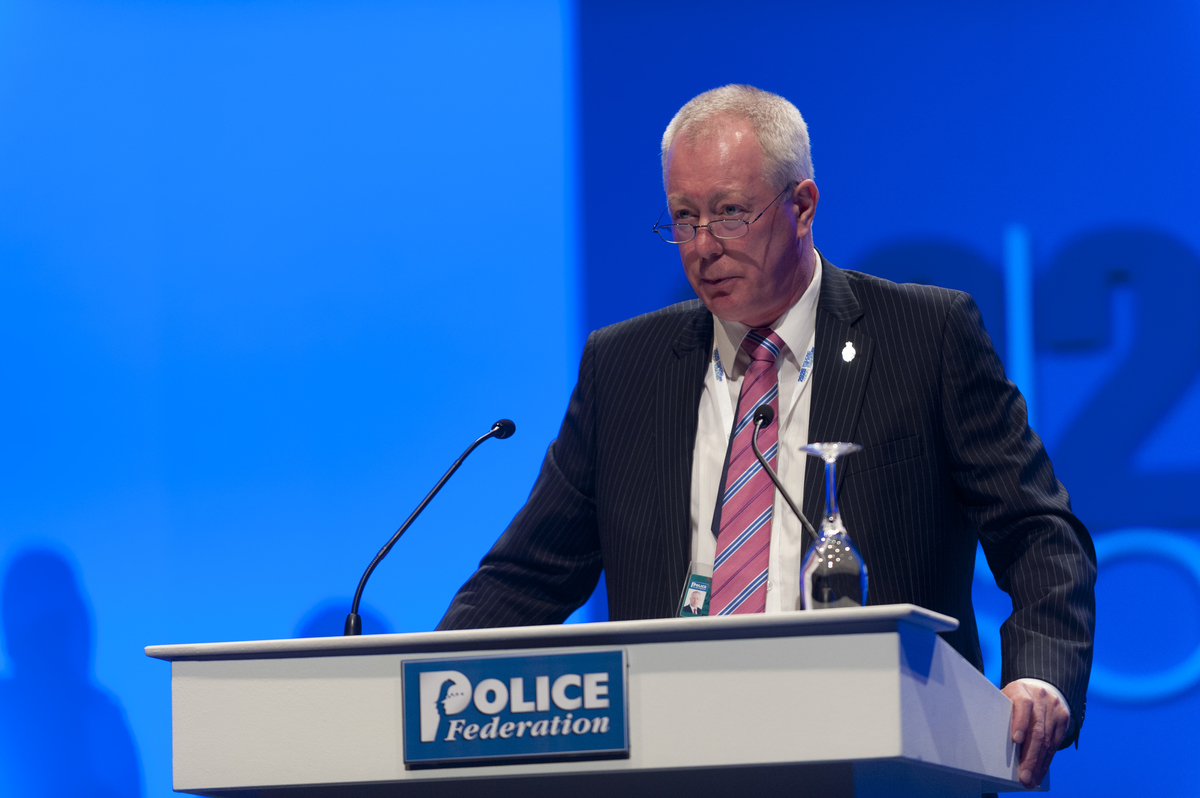PFEW: “We got it right on the industrial rights ballot”
THE Police Federation of England and Wales has stood by its decision to impose a majority threshold on the industrial rights ballot.
Ian Rennie, general secretary, (pictured) insisted the Joint Central Committee had made the right decision to impose a fifty-per-cent-plus-one threshold.
A conference debate heard the national Federation being accused of setting an “unnecessarily high” threshold.
Paul Deller, general secretary of the Met Federation Constables’ Branch Board, said it was “appalling” that the Federation did not view the ballot as a democratic election, through which a first-past-the-post voting system would have resulted in the Federation pursuing industrial rights.
During the ballot in February, 56,333 Police Federation members voted – roughly 42 per cent of the overall number of members in England and Wales. A total of 46,651 were in favour of the Federation seeking industrial rights and 10,681 were against.
Despite the overwhelming majority of voters favouring radical action, the national Federation has maintained that they would need a majority of their 133,108 members to vote in favour to pursue such a fundamental change in officers’ status as Crown Servants.
Mr Rennie acknowledged that the results showed “just how strongly many of our members feel about the way they have been treated by this government”.
However, he said: “To seek such a change supported by only a minority of the membership would have left us open to challenge both inside and outside of the organisation.”
He added: “Whilst many members might be disappointed with the results of the ballot, we must not lose sight of the fact that more than half – 58 per cent – of our members did not vote. It is not possible to establish whether this was because they had declined to vote or were not bothered by the outcome.”
Mr Rennie received support from many delegates in the room, including Steve Fraser, from Avon and Somerset Constabulary, who said he would be “absolutely appalled” if less than half of the membership voted for industrial rights and the Federation went along with it when the majority did not want it or did not make it clear that they wanted it.
Mr Rennie concluded: “I still believe that we as an organisation got this right.”

